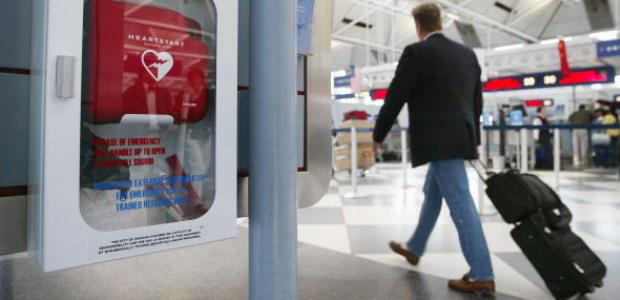
SCA Signs Often Missed, Study Finds
The authors reported that warning symptoms frequently occur prior to sudden cardiac arrest, but most are ignored.
Results of a study published Dec. 22 in Annals of Internal Medicine will be of interest to EMTs and emergency responders generally, as well as HR and safety managers and company executives. The study, titled "Warning Symptoms Are Associated With Survival From Sudden Cardiac Arrest," indicates warning signs often precede someone's sudden cardiac arrest (SCA), but most of the signs are ignored.
The authors are from Cedars-Sinai Medical Center, Los Angeles; Paris Descartes University and European Georges Pompidou Hospital (Paris, France); and Oregon Health & Science University (Portland, Ore.). They thanked the EMS personnel (American Medical Response and Portland and Gresham fire departments), the Oregon State Medical Examiner's Office, and hospitals in the Portland metropolitan area for their assistance; and Dr. Wulfran Bougouin (Paris Sudden Death Expertise Center, Paris, France) and Prof. David S. Celermajer (Sydney Medical School, Sydney, Australia) for their critical review of the manuscript.
The research received grant support from the National Heart, Lung, and Blood Institute.
The authors sought to assess characteristics of symptoms in the four weeks before SCA and whether response to those symptoms is associated with better outcomes. They evaluated 839 patients ages 35-65 with SCA, assessing their symptoms and the association with survival to hospital discharge. The authors found that 439 patients (51 percent) had warning symptoms (50 percent of men vs. 53 percent of women), mainly chest pain and shortness of breath. In 93 percent of the patients who experienced symptoms, their symptoms recurred within the 24 hours preceding SCA. But only 81 patients (19 percent) called emergency medical services to report symptoms before SCA, and those persons were more likely to be patients with a history of heart disease or continuous chest pain.
They found that survival when 911 was called in response to symptoms was 32.1 percent versus only 6.0 percent for those who did not call.